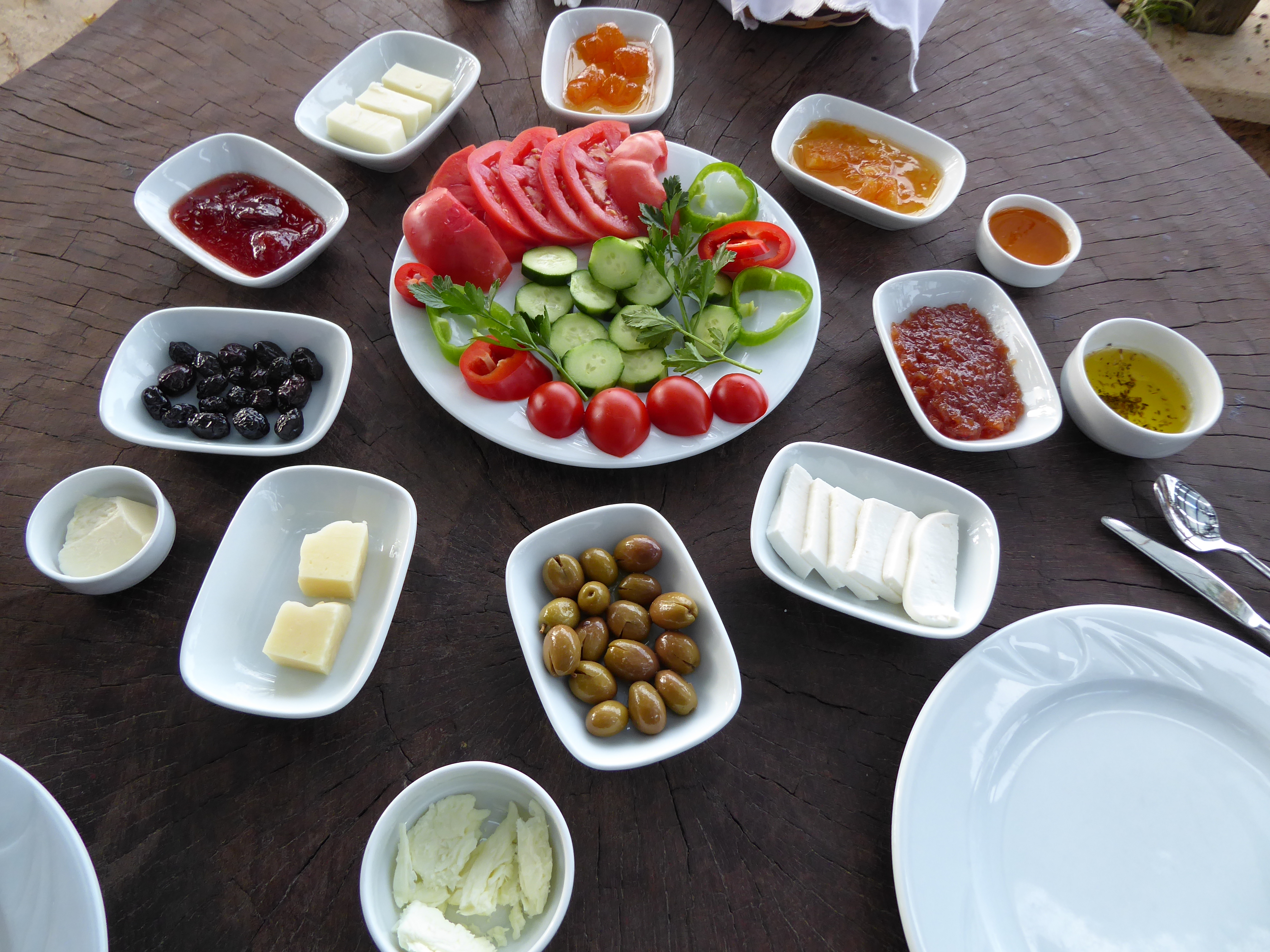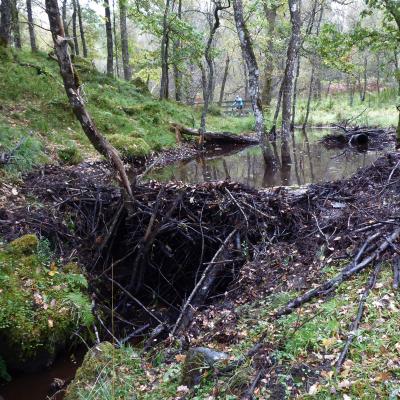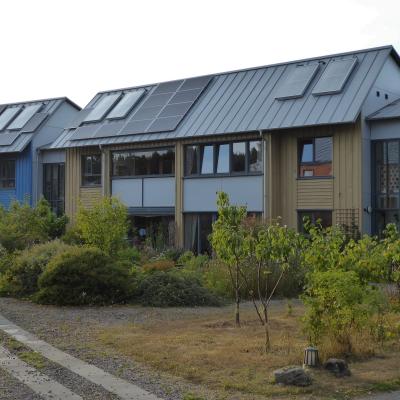My recent holiday to Turkey got me thinking about the British (and ‘western’) diet and just how bad it is for our health and for the planet.
Sitting on the terrace in the sunshine, looking out over a blue Mediterranean Sea, the waiter brought our breakfast. Home-made bread, green olives and black olives, butter, apricot jam, a choice of three goat cheeses, tomatoes, cucumber, fresh herbs, peppers, walnuts and a boiled egg. I looked at the spread laid out in front of me and thought how different this is to hotels I am used to. Normally I’d be offered highly processed cereals, a cooked fried meaty breakfast, sugary muffin and highly processed breads accompanied by jam in plastic sachets.
Here, there is no plastic at our table. Everything (except the tea) is local, either grown in the hotel garden or produced in the village. The food is fresh, picked this morning or yesterday, and made from raw ingredients with little processing and no additives or preservatives. My only gripe is that they have served us with too much food, and I hate food waste. However, unlike in some countries, I suspect this waste food is not put in a plastic bag, left to partially decompose, then taken by truck to landfill. More likely it will be fed to the chickens that are running around our table, or to the numerous stray cats and dogs.
The Mediterranean Diet
I googled ‘the Mediterranean Diet’. Meals are built around vegetables, fruits, herbs, nuts, beans, whole grains and olive oil, with moderate amounts of fish, poultry and eggs. A Mediterranean Diet reduces the risk of cardiovascular disease, type 2 diabetes and depression, and increases overall life expectancy. More importantly perhaps, older people can lead more productive and active lives as they tend not to be obese and are more agile. What’s not to like?
Also, there is the happy coincidence that there is a strong correlation between a healthy diet and a low carbon diet. Red meat is associated with the highest greenhouse gas emissions, followed by dairy products (milk, cheese, chocolate), whilst sugar is moderately high too. Processing and packaging foods in factories adds to the carbon footprint. The lowest emissions are associated with fruit and vegetables, pulses, peas, beans and nuts – all of which are healthy.
So, if our western diet is proven to be bad for us, and bad for the planet, what are our governments doing about it? Not a lot, as far as I can see. The only substantial measure in the UK was the introduction of the ‘sugar tax’ targeted solely at soft drinks. A tiny step in the right direction. The lobbyists from the major food manufacturers and farm producers are too powerful for most governments to choose to stand up to. Report after independent report recommends further action to help consumers, but these recommendations are swept away, delayed or watered down.
Can I act Locally?
Yes, this is one are where local action will make some difference. Grow vegetables in your garden, rent an allotment, visit community owned farms. Buy fruit and vegetables; using veggie boxes, local greengrocers, markets or whatever is available to you.
Buy fewer take-away meals (are any healthy?), buy fewer ultra processed foods, eat less meat. Buy fewer ready-made meals for your microwave.
If you are a member of a campaigning community environmental group, perhaps your group could run local cookery classes. This would be an effective way to engage with your members and reach a new audience.
But there is only so much that you can do yourself when we are surrounded by advertising and marketing messages; and when food manufacturers, grocers, supermarkets and take-aways promote unhealthy food.
What could governments do?
There is so much that governments could do. But they don’t seem inclined to do so, as it would be ‘interfering in people’s lives’. Is making our lives better, “interfering”?
- Share and highlight the results of studies on ultra processed foods
- Extend the sugar tax, this sends a message and nudges behaviour
- Promote (subsidise) local markets and greengrocers
- Prepare healthy meals in prisons and schools
- Create a programme of cookery classes for adults at colleges or on-line
- Regulate to improve labelling and to force reductions in salt, sugar and saturated fats
A mixture of carrot and stick. If you think this is not possible, then think again. Finland had the worst rate of heart disease in the western world in the 1970’s. A sustained government campaign of education, regulation and working with communities has turned this round. The campaign tackled poor diet, smoking and exercise. The dietary campaign centred on reducing the intake of full fat milk and red meat, and to increase consumption of local berries and vegetables. Finland now has a higher life expectancy than the UK.
Conclusions
Our western diet is poor and getting worse. This adversely impacts on our mental and physical health. We know this yet do nothing about it. We need a sustained community-based campaign, championed by a motivated government, to change our behaviours. This would have benefits for communities, our health and wellbeing and for the planet.
If you like this blog, please share it with your friends and on social media.
Carbon Choices
Don’t miss my future blogs! Please email me at This email address is being protected from spambots. You need JavaScript enabled to view it. and I will send you each new blog as I publish them.
You might also enjoy my book, Carbon Choices on the common-sense solutions to our climate and nature crises. Available direct from me here. I am donating one third of profits to rewilding projects.
Follow me:
@carbonchoicesuk (twitter) @carbonchoices (Facebook) @carbonchoices (Instagram)







